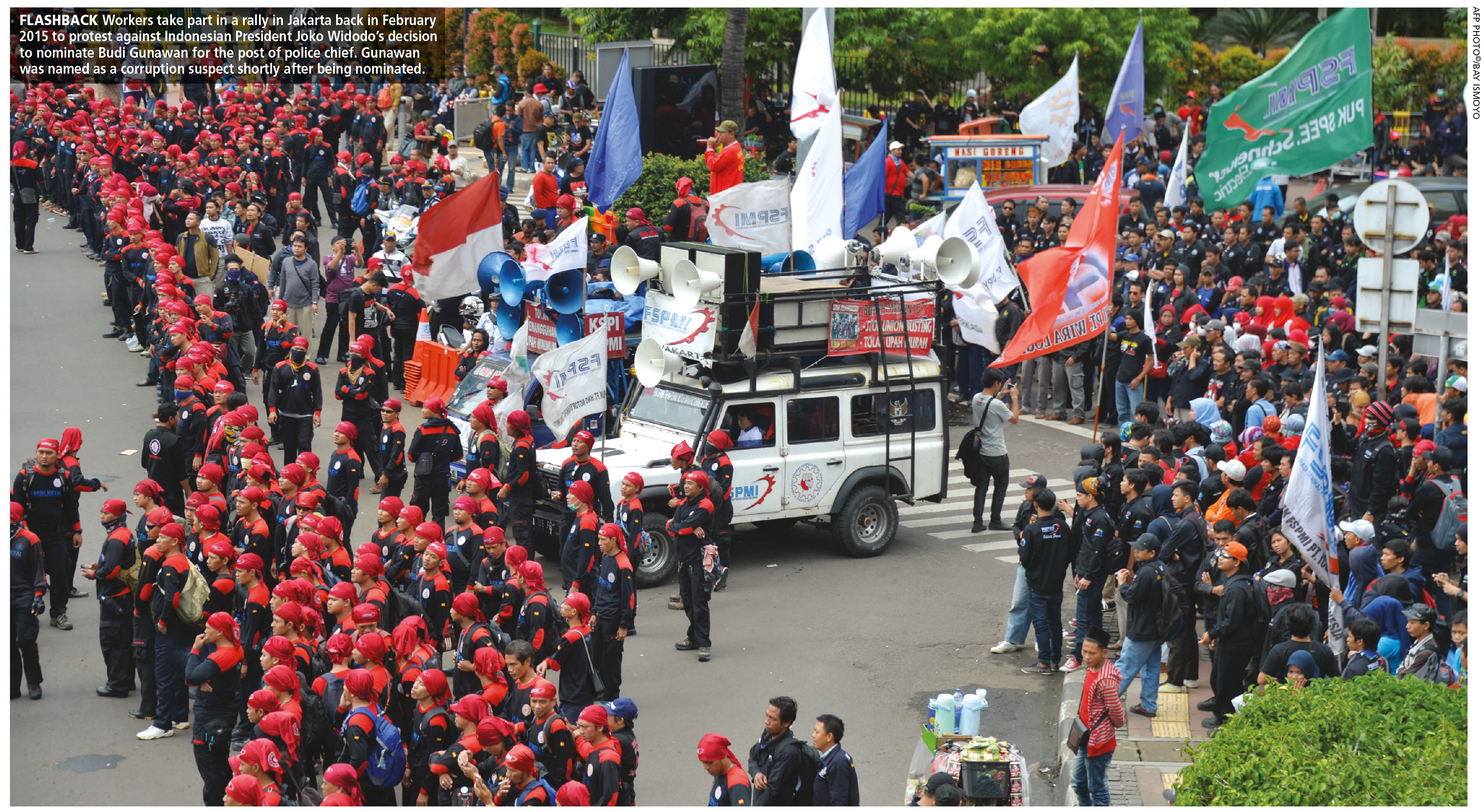ANTICORRUPTION EDUCATION
YOUNG SAVIOURS
KPK is ensuring that Indonesia’s youth will learn to act with honesty and integrity – Rajika Jayatilake explains
Over the centuries, the value of education has been acclaimed by the wise. Aristotle once said: “The roots of education are bitter but its fruits are sweet.” Today, the wisdom of those words is seen in Indonesia… in a most salutary manner.
Recently, tens of thousands of Indonesia’s youth protested in cities across the country and stood up to corrupt politicians who were trying to weaken its independent Corruption Eradication Commission known as the Komisi Pemberantasan Korupsi (KPK).
In 1998, when a new era called ‘Reformasi’ began in Indonesia, a US$ 43 billion IMF bailout package was conditional upon new corruption controls in the form of establishing a comprehensive anticorruption commission. Eventually, the KPK was established in 2003, and mandated to investigate, punish and prevent corruption.
According to Transparency International’s initial ranking of perceived corruption in countries in 1995, Indonesia languished in last place. In 2018, it was ranked 89 out of 180 and came into the first half of the chart for the first time. The main reason for the reduction in corruption has been KPK’s ability to successfully convict hundreds of corrupt officials since 2002. Currently, it is investigating 23 MPs on suspicion of corruption.

Protesting students demanded that President Joko Widodo overturn the new law on KPK, which will weaken and even cripple the commission. Indonesia Corruption Watch has accused lawmakers of using the new law to protect themselves. Widodo, who recently won a second term after campaigning for clean governance, did consider revoking the new law but the idea was immediately opposed by members of his coalition in parliament.
The new law will reduce KPK’s independence in fighting corruption, specifically because of a requirement that its investigators should be civil servants seconded from state bodies.
Furthermore, the Indonesian police force is plagued by corruption; it has no moral authority to investigate corruption. The Indonesian judiciary is allegedly corrupt as well and extensively influenced by politicians. Bribery is widespread among public servants too and one in five companies are compelled to bribe tax officials.
Interestingly, when KPK first began its work, it found that many Indonesians had never known about the concept of integrity. In a society devoid of moral values, KPK realised it had to begin at square one by educating the younger generation as doing so for corrupt adults would be a lost cause.
In July 2012, KPK introduced a national agenda for anticorruption education at school and university levels. A memorandum of understanding was signed between KPK and the Ministry of Education to coordinate anticorruption education in 46,286 schools (3,796 senior high schools, 7,670 junior high schools and 34,820 elementary schools).
KPK also urged local governments to ensure that schools conduct anticorruption education to create an ‘anticorruption culture ecosystem’ that builds character in younger generations.
According to Indonesia Corruption Watch, much of the national education budget was earlier lost to corruption before reaching schools. Meanwhile, corruption in schools drew students, parents, administrators and teachers into a brutal cycle of bribery, embezzlement and extortion.
The anticorruption curriculum developed by the Ministry of Education included modules
in civics for students up to high school and specific anticorruption subjects at university level. The national curriculum strongly focusses on moral and religious instruction, and education on Pancasila – the five principles upon which the Indonesian state was built, which includes the principle of social justice.
Under KPK supervision, children are taught noble values through fun and educational activities. KPK spokesperson Febri Diansyah says that anticorruption information is disseminated to youth through books, games and music. Storytellers relate anticorruption tales and conduct discussions about daily acts that work against corruption.
In KPK’s view, these activities will not only instil the values of integrity in children but also enable them to educate their own communities.
Young Indonesians who participate in KPK educational programmes are gradually beginning to understand what honesty and integrity mean. The programme includes a popular book for preteens called ‘Aku Anak Jujur’ (‘I’m an Honest Child’).
Further, Indonesia’s Academic Integrity Campaign includes a Handbook of Academic Integrity that outlines the main forms of academic misconduct including how plagiarism is perceived and managed in Indonesia.
KPK appears to be envisioning the future through this course of action. It suggests that when students who receive an education in anticorruption subjects grow up and enter the workforce or bureaucracy, the principles instilled in them will come into play in their day-to-day actions.
The beneficial effects of the current programmes will be seen in the future. In the meantime, KPK looks for public awareness and support for an anticorruption message that will lead Indonesia to unlearn its deep-rooted corrupt practices.
As the former US politician Gaylord Nelson once said, “the ultimate test of man’s conscience may be his willingness to sacrifice something today, for future generations whose words of thanks will not be heard.”
The ultimate test of man’s conscience may be his willingness to sacrifice something today, for future generations whose words of thanks will not be heard
Gaylord Nelson





Good article.